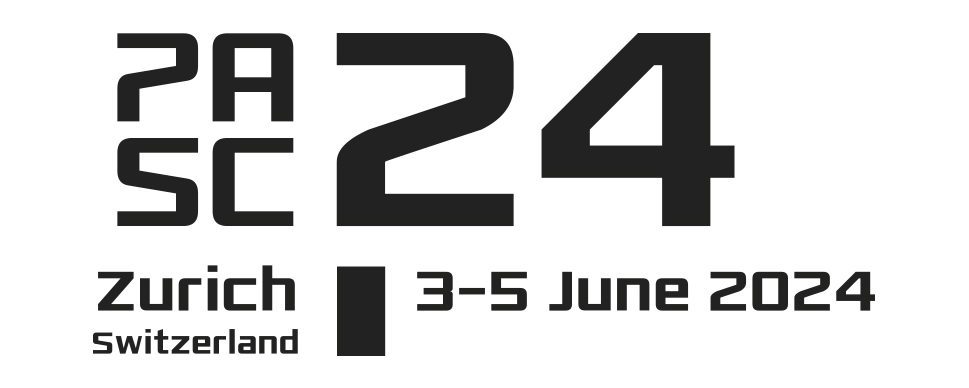MS4H - Synergizing AI and HPC for Pandemic Preparedness with Genomics and Clinical Risk Assessment
Session Chairs
Event TypeMinisymposium
Chemistry and Materials
Engineering
Life Sciences
Computational Methods and Applied Mathematics
TimeTuesday, June 416:00 - 18:00 CEST
LocationHG F 26.5
DescriptionTo address emerging virus variants, our strategy integrates next-gen vaccines and personalized disease treatments. In Bioinformatics Sequencing, HPC and AI power vaccine development and infection control. Simultaneously, AI-Driven Clinical Risk Assessment aids healthcare in pandemics. Personalized disease stratification involves AI models for risk assessment and interpretability-guided deep learning in medical applications. Standardizing EHR and Federated Learning ensures data integrity and privacy. In Bioinformatics Sequencing, we tackle challenges through: Drug Discovery for Next-Gen Vaccines: Applying bioinformatics to identify therapeutic candidates from genomic data for infectious diseases. Evolutionary Analysis for Infection Spread: Analyzing viral sequence data to identify important genes, functions, and evolution for minimizing and tracking infection spread. Accelerating Genotype-Phenotype Workflow: Correlating genotype to phenotype for efficient drug discovery in functional genomics. For AI-Driven Clinical Risk Assessment, methods include: AI Models for Disease Progression: Using advanced deep learning to characterize disease subtypes based on unsupervised and supervised learning. Interpretability-Guided Deep Learning: Enhancing comprehension in medical AI by addressing bias, shortcut learning, and susceptibility to attacks. Standardizing EHR and Federated Learning: Ensuring uniform Electronic Health Records (EHRs) usage, standardizing data formats, and addressing privacy concerns through federated learning. This minisymposium brings together experts to accelerate pandemic preparedness with clinico-genomic-data to improve diagnosis.
Presentations

